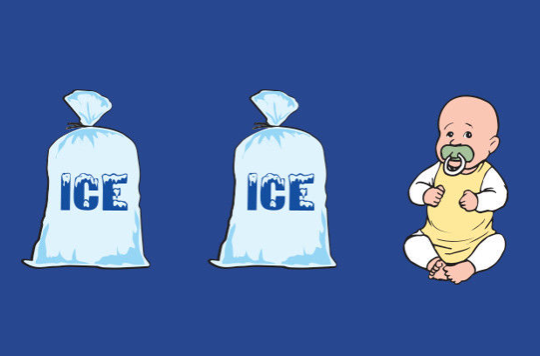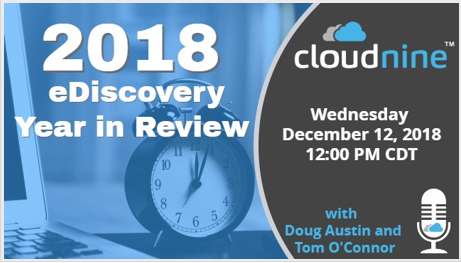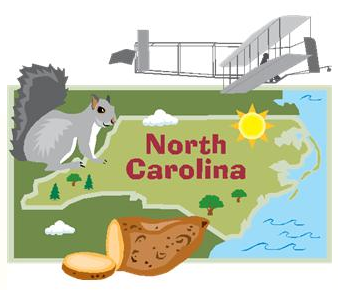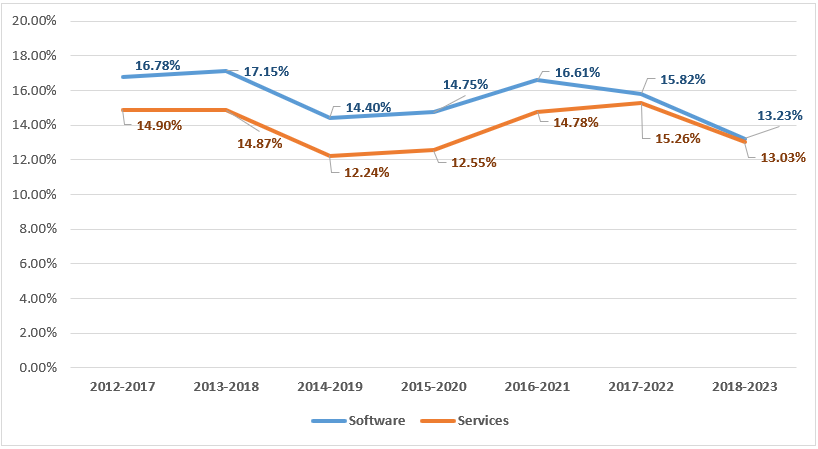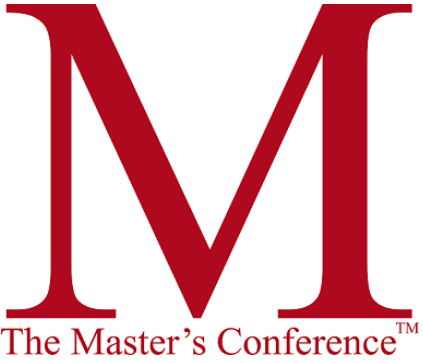Ice, Ice Baby! Is eDiscovery Business Confidence on Ice or Warming Up?: eDiscovery Trends
Hard to believe that we’ve started the fourth year of the Complex Discovery eDiscovery Business Confidence Survey! The results are in for the Winter 2019 eDiscovery Business Confidence Survey and as was the case for the previous three years’ surveys, the results for this year’s Winter survey are published on Rob Robinson’s terrific Complex Discovery site. How confident are individuals working in the eDiscovery ecosystem in the business of eDiscovery? Let’s see.
As always, Rob provides a complete breakdown of the latest survey results, which you can check out here. As I’ve done for the past few surveys, I will provide some analysis and I’m continuing to take a look at all surveys conducted to look at trends over time. So, this time, I will look at the results for all thirteen surveys to date.
The Winter 2019 Survey response period was initiated on December 27 and continued until registration of 75 responses last week. Initiated in January 2016, to date the survey has been administered thirteen times with 1,268(!) individual responses.
Providers, Providers, Providers: Software and/or Services Provider respondents tied for the top spot with Law Firm respondents at 29.3% of all respondents. Consultancy respondents were again third at 22.7%. If you count law firms as providers (they’re technically both providers and consumers), this is a provider heavy survey with 83.3% of total respondents (which is high, but not as high as last time). Here’s a graphical representation of the trend over the thirteen surveys to date:
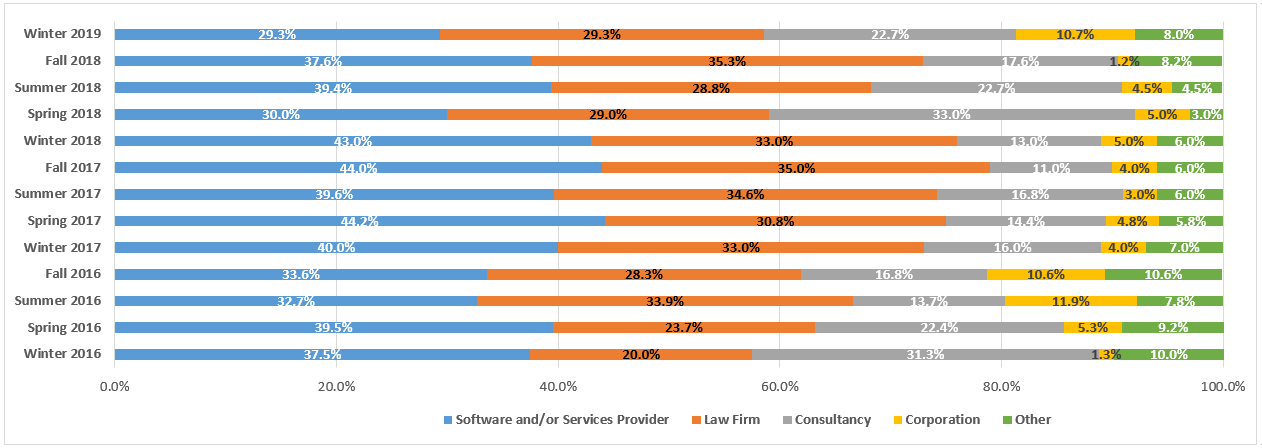
So, it’s another provider heavy survey (if not quite as heavy). So, how confident are providers in eDiscovery business confidence? See below.
A Little Over Half of Respondents Consider Business to Be Good: Yo-yo time! This time, 53.3% of respondents considered business to be good, over 9% (9.1%, to be exact) less than the 62.4% we had last quarter. And, 4.7% less than last Winter when it was 58%. 10.7% of respondents rated business conditions as bad, which is the first time it was over ten percent since back in Summer 2016. So, it seems the pattern of up and down over quarters continues. Here is the trend over the thirteen surveys to date:
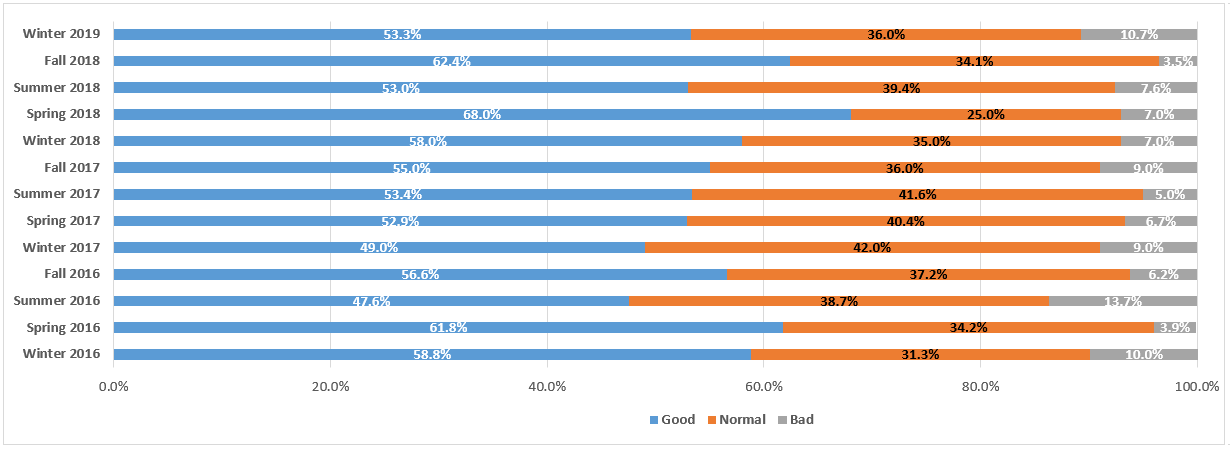
So, how good do respondents expect business to be in six months? See below.
Lowering Numbers on Revenue and Profit Expectations As Well: While most respondents (93.3%) expect business conditions will be in their segment to be the same or better six months from now, that’s almost three percentage points worse than last quarter’s 96.5%), but the percentage expecting business to be better did rise to 52%. However, revenue (at combined 92% for the same or better) is 2.1 points worse than the last quarter. Profit expectations (combined 93.3%) rose 6.6 points from last quarter, but with those expecting higher profits dropping to a new low of 28% – 10.7% lower than the previous low and down 25% since last summer. Here is the profits trend over the thirteen surveys to date:
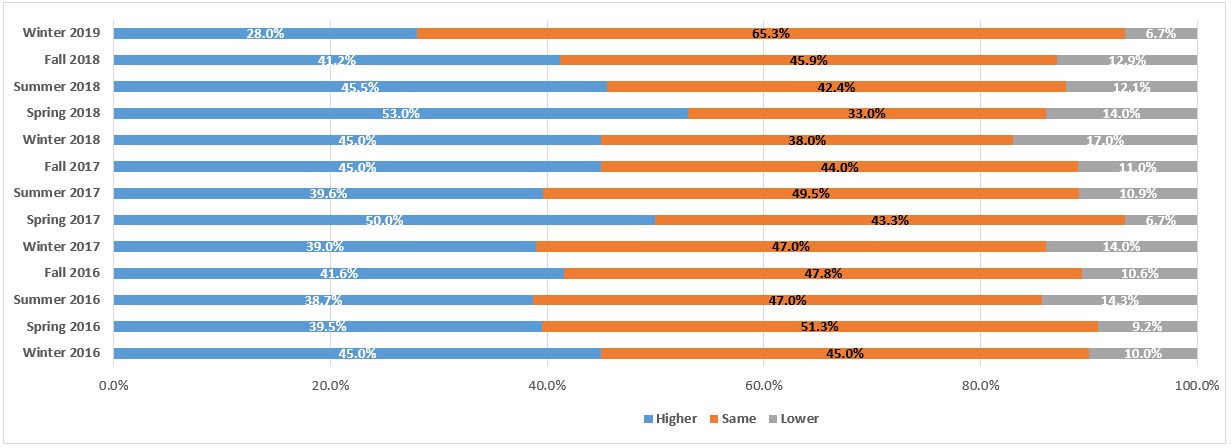
Are the prophets predicting lower profits (see what I did there?) correct? We’ll see.
It’s Budget Time! Budgetary Constraints Considered to Be Most Impactful to eDiscovery Business: Budgetary Constraints moved back from tied for last to all the way to the top at 22.7%. Increasing Volumes of Data was once again second at 21.3%, followed by Increasing Types of Data at 18.7%. Inadequate Technology was fourth at 13.3%, followed by Lack of Personnel and Data Security tied for last at 12%. The graph below illustrates the distribution over the thirteen surveys to date:
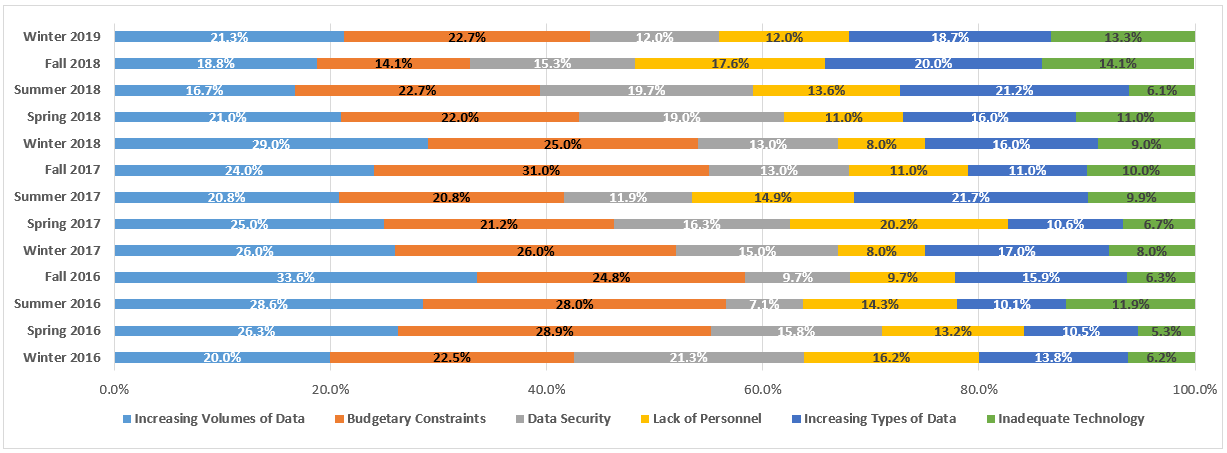
It’s not surprising that, as often as not, it’s about the costs in the end.
Level of Support Can’t Get More Even: A three-way tie! Executive Leadership, Operational Management and Tactical Execution respondents were all tied at 33.3%. So, from a level of support standpoint, you can’t get more balanced than that. Here’s the breakdown over the thirteen surveys to date:
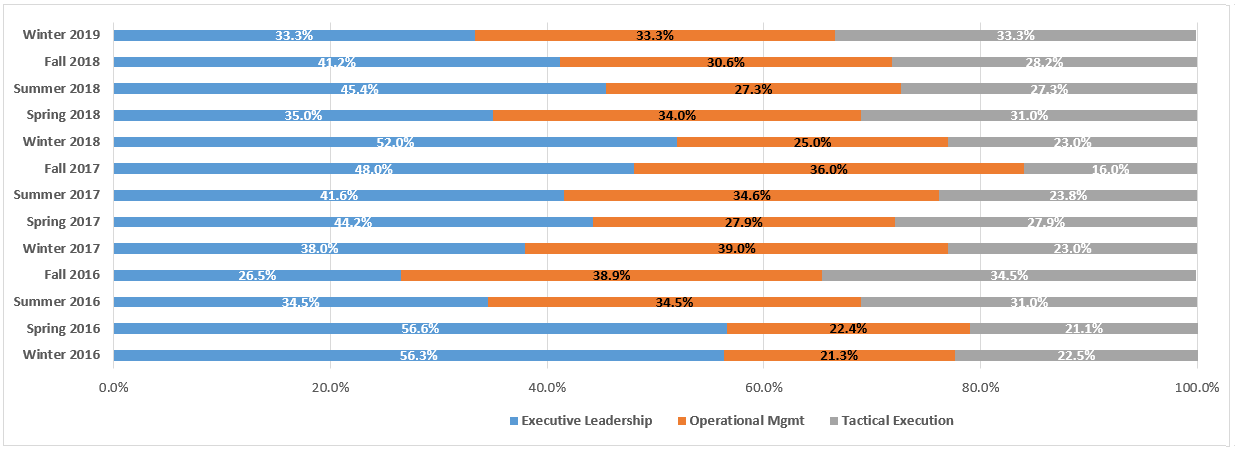
The variance in distribution continues each quarter, demonstrating that it’s not the same people giving the same answers each time.
Again, Rob has published the results on his site here, which shows responses to additional questions not referenced here including the three recently added questions. Maybe we’ll cover them soon? Anyway, check them out.
So, what do you think? What’s your state of confidence in the business of eDiscovery? Please share any comments you might have or if you’d like to know more about a particular topic.
Sponsor: This blog is sponsored by CloudNine, which is a data and legal discovery technology company with proven expertise in simplifying and automating the discovery of data for audits, investigations, and litigation. Used by legal and business customers worldwide including more than 50 of the top 250 Am Law firms and many of the world’s leading corporations, CloudNine’s eDiscovery automation software and services help customers gain insight and intelligence on electronic data.
Disclaimer: The views represented herein are exclusively the views of the author, and do not necessarily represent the views held by CloudNine. eDiscovery Daily is made available by CloudNine solely for educational purposes to provide general information about general eDiscovery principles and not to provide specific legal advice applicable to any particular circumstance. eDiscovery Daily should not be used as a substitute for competent legal advice from a lawyer you have retained and who has agreed to represent you.

